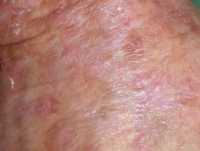Author Interviews, Cancer Research, Dermatology, NEJM / 11.02.2021
Once Daily Five-Day Course of Novel Topical Agent Clears Actinic Keratoses
MedicalResearch.com Interview with:
Jane Fang, MD
Clinical
Athenex, Inc.
MedicalResearch.com: What is the background for this study? Would you briefly explain what is meant by actinic keratoses? How common are they and who is primarily affected?
Response: Actinic keratosis is a very common precancerous skin condition that affects about 58 millions people in the US. Most commonly affected people are older (over 40 years old) men with fair skin type. Actinic keratosis lesions are red scaly bumps on sun-damaged skin mostly on the face, scalp, back of hands, forearms and legs. As there is a risk of 0.025-16% per year for each actinic keratosis to progress to skin cancer and it is not possible to predict which actinic keratosis will become cancerous, early treatment of actinic keratosis is generally recommended. Currently approved topical treatments require weeks or months of application and may lead to intolerable side effects that undermine compliance and reduce efficacy of treatment.
Tirbanibulin ointment is a novel anti-proliferative agent that inhibits tubulin polymerization and disrupts Src kinase signaling, and has the potential to inhibit growth of abnormal skin cells in actinic keratosis. The current report described two Phase 3 randomized vehicle or placebo-controlled clinical studies that demonstrated that a 5-day course of tirbanibulin ointment applied once daily by patients was safe, well-tolerated, and effective in clearing actinic keratosis on the face or scalp compared to vehicle control. (more…)


